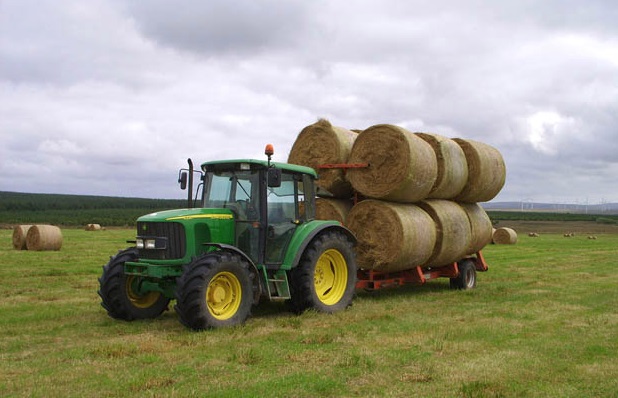
NFU Scotland has written to the Secretary of State for Agriculture, Owen Paterson MP, reminding him of Scottish farming priorities ahead of vital CAP reform discussions.
The Union is concerned that recent Defra statements regarding CAP reform have focussed solely on an English farming agenda given that Scotland's priorities are 'different.' The NFUS is seeking reassurances from Paterson that Scottish farming requirements from CAP reform will be pursued.
"The next weeks and months will require intense effort by all of the UK's farming ministers, their officials and key stakeholders to drive forward a CAP reform package" NFU Scotland President Nigel Miller said.
"That package must genuinely sustain production, enable rural communities to thrive, and support the delivery of a flourishing environment across the whole of the UK."
The amount of money assigned to CAP, which is a direct form of payment to farmers in the EU, and a number of concerns relating to the future of the policy are among the issues to be discussed in next week's plenary vote in Strasbourg on the commission's planned shake-up for 2014 to 2020.
NFU Deputy President Meurig Raymond will be in Strasbourg where the European Parliament's 754 MEPs will vote on a range of measures that will shape the Parliament's position as part of final stages of CAP reform negotiations.
"We are having one last push ahead of Parliament's vote to make sure MEPs lay down the foundations for a future CAP based on our four overriding principles: simplicity, fairness, competitiveness and productivity" said Raymond, who will meet MEPs at the forefront of the reforms.
The challenge is made greater by the diversity of agriculture and land use both within Scotland and the UK.
The mix of diverse agricultural systems, variable activity and a Scottish regional budget well below the European target of €196 per hectare means that Scottish producers are already on a pathway to low area payments that would place them at a disadvantage.
"With 85 percent of our farmed area already designated as disadvantaged and less favoured, Scottish farming remains heavily dependent on fragile hill and upland livestock systems" Miller said.
"Yet those actively managed livestock systems underpin remoter communities and provide the basis for rich biodiversity and iconic landscapes. That is why we are seeking a CAP Reform package that will allow Scottish farmers to compete in the market and sustain livestock production.
"Negotiations must deliver tools that can target support so that funding can be more efficiently used.
The union said the ability to voluntarily couple support to sustain suckler beef herds and ewe flocks was 'one of our priorities' but Miller said they require the UK to provide the full flexibility if this option was chosen.
"Defra Farming Minister David Heath MP, when visiting our recent AGM, outlined a pragmatic approach to voluntary coupled support.
"That option would act as a top-up to low area and greening payments in Scotland and help ensure funds go to those who are active.
"The alternative approach to parity for UK producers would be to press for transition measures to allow partial internal convergence until Scotland’s budget for area-based support reaches the €196 per hectare target or gains parity with similar payment regions in the rest of the UK.
"Comparable farm businesses and enterprises working on similar land types should not face a permanent disadvantage because of where they are located within the UK."
